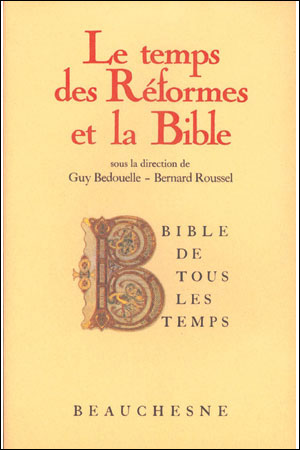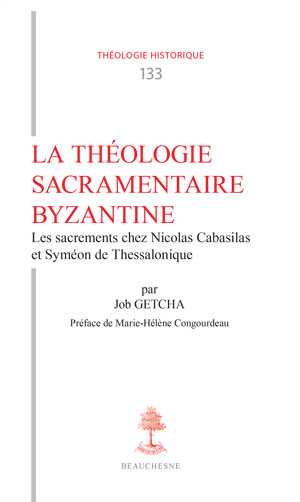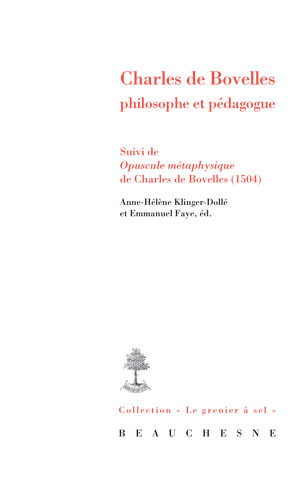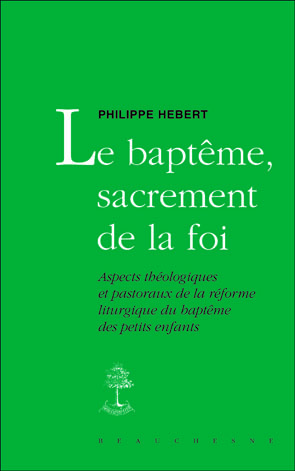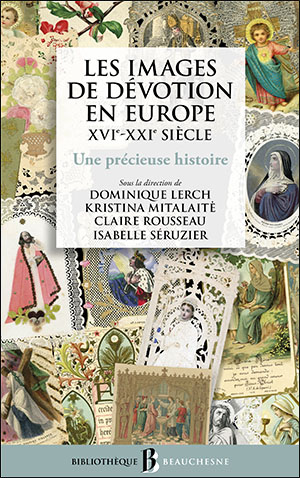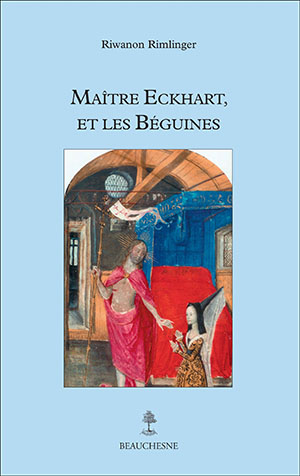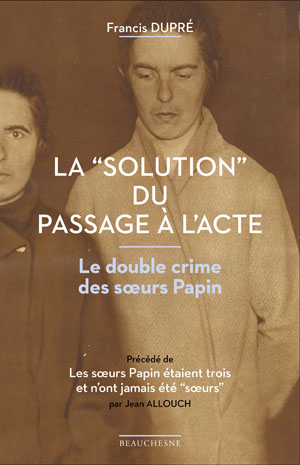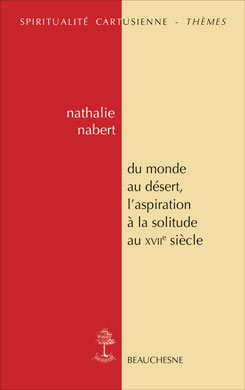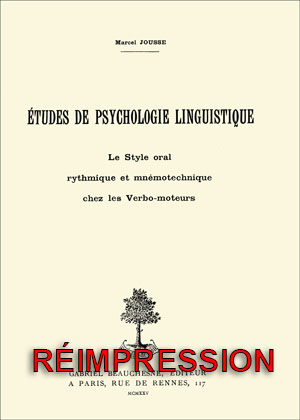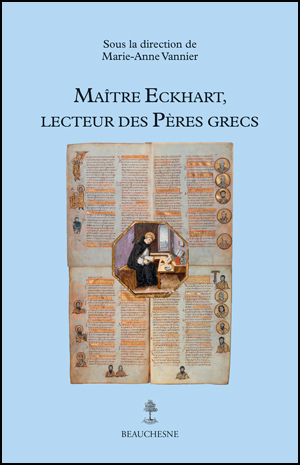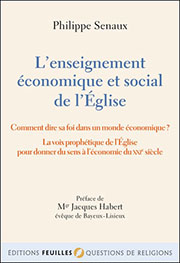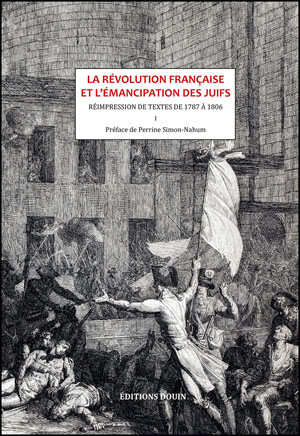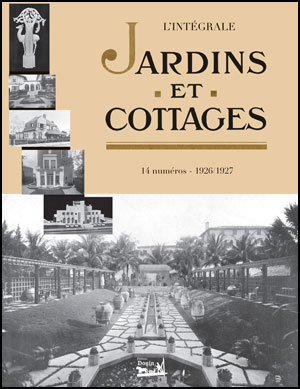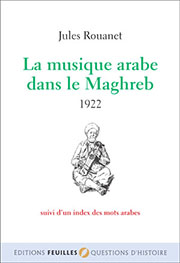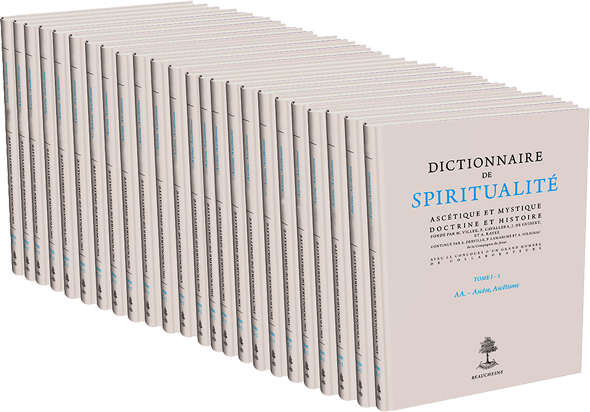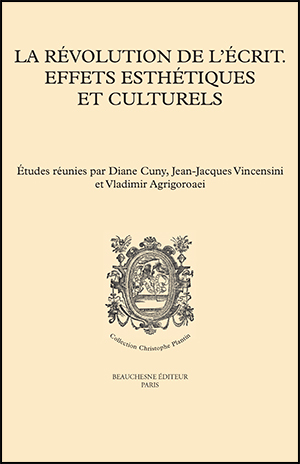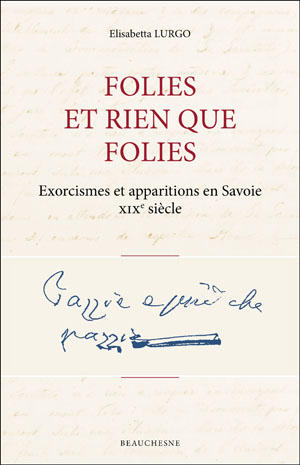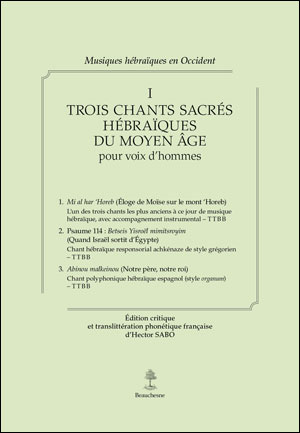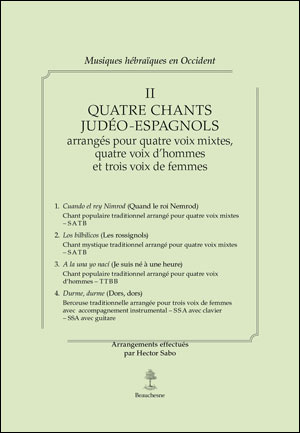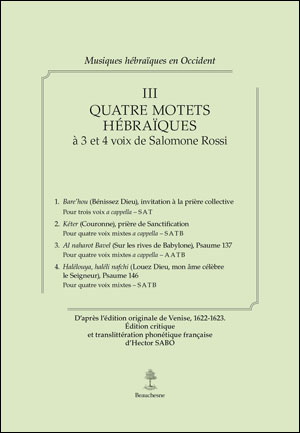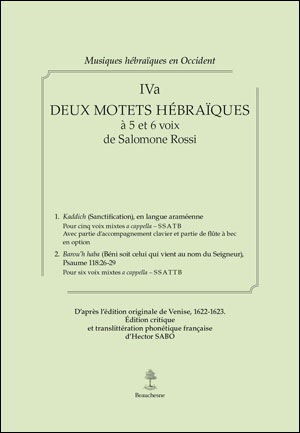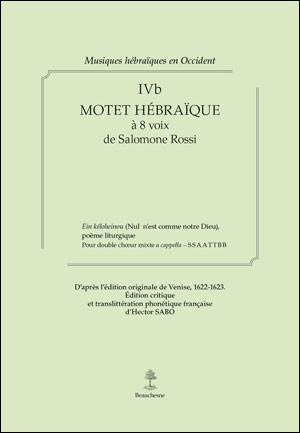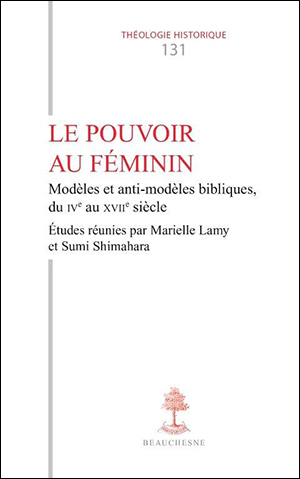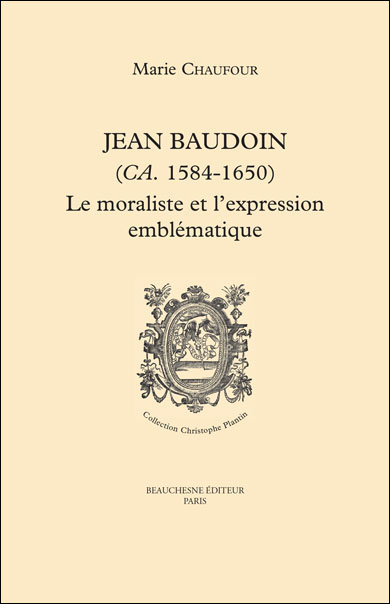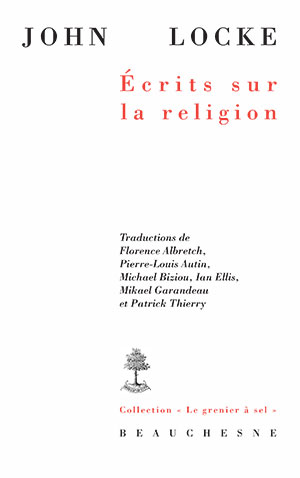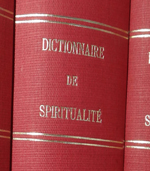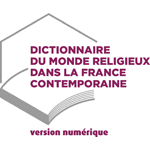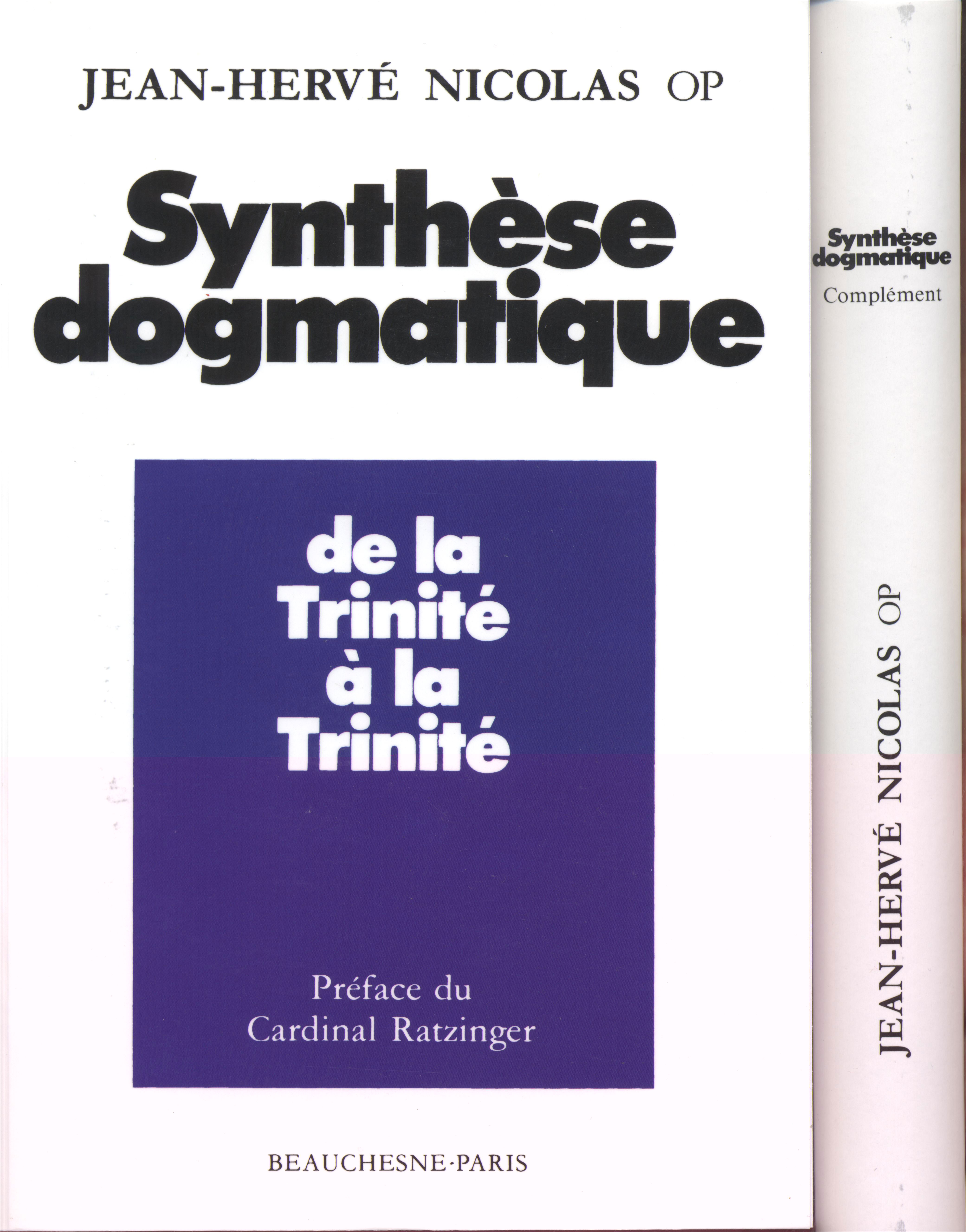85.00 €
BIBLE DE TOUS LES TEMPS N°5- LE TEMPS DES RÉFORMES ET LA BIBLE
Date d'ajout : mardi 22 août 2017
par L. LEGRAND
INDIAN THEOLOGICAL STUDIES, XXVII, March 1990
Its has already reported the publication of an important French series on the History of the Bible entitled Bible de tous les Temps ("The Bible through the ages"') (cf. ITS 24, 1987, pp. 76-85; 25, 1988, pp. 194-197). The interest of the collection is that it is not only a story of biblical scholarship like the Cambridge History of the Bible but a study of the influence of the Bible on society and culture down to the grass root level of the impact of biblical lore on the common man's life. It is to the credit of the publishers and editors that the project has developed at a fast pace and is now nearing completion. With the present vol. 5 on the XVI century, seven parts have now been published out of eight : only vol. 6 on the XVII century is still to appear.
This volume on the XVI century is of particular importance : it is the time of the great reformations. The plural of the title will be noticed. The authors do not isolate the Protestant Reformation. They see and present the XVI c. as a time of lively awakening that, in so far as the Bible is concerned, anticipated and overlapped the Protestant Reformation, with the great biblical revival marked by the commentaries of Valla (1405-1457), the Polyglot Bible of Alcala (1514-1521), the multiplication of translations in Latin and other languages of Europe, the creation of chairs of Greek and Hebrew in important universities, the publication and composition of commentaries, the Catholic (counter-?) reformation, without omitting the impact of the Bible in the orthodox world (traumatized by the fall of Byzantium but, on account of that, exploding into a rich constellation of schools in the Greek world, Western Europe, Russia, the Arab world), Jewish exegesis (possibly not very creative at that time, but, owing to printing - Soncino Press - popularising the commentaries of Qimhi, Rashi, the Targums, producing a number of translations and getting the recognition of Christian exegetes), the place of the Bible in the Catholic mystical movement, in music, literature, iconography...
In such a mass of facts and information, one can always question one or the other aspect of the expose. For instance, in the section on mysticism, I would have preferred that less be said about the kabbalistic speculations of Luis de Leon on the shape of letters and more about the splendid pages of John of the Cross on the superiority of the Gospel over any revelation and appearance (Ascent of Mount Carmel II, xx). Concerning the question of images, the iconoclast movement of early Protestantism seems to have been a little slided over in two pages and might have deserved more attention. Yet those two chapters on Mysticism and on the question of biblical images are, like the rest, well informed and rich in enlightening or challenging insights (cf. the reflections on the methods of meditation of "modern piety" as based on biblical images rather than on the text and therefore departing from the traditional pattern of lectio. meditatio, oralio, contemplatio: pp. 603-606)
There are less contributors in the present volume than in the other books of the series. The first page lists 18 contributors but the two editors have written themselves about 60 % of the total text : the book gains thereby in cohesion what it loses in kaleidoscopic variety.
Like the other books of the set, this volume is completed by a rich bibliography (19 pages), a scriptural and a nominal index. Along with its companions of the set, it makes an indispensable tool for the study of the Wirkungsgeschichte of the Bible in Western society.
Its has already reported the publication of an important French series on the History of the Bible entitled Bible de tous les Temps ("The Bible through the ages"') (cf. ITS 24, 1987, pp. 76-85; 25, 1988, pp. 194-197). The interest of the collection is that it is not only a story of biblical scholarship like the Cambridge History of the Bible but a study of the influence of the Bible on society and culture down to the grass root level of the impact of biblical lore on the common man's life. It is to the credit of the publishers and editors that the project has developed at a fast pace and is now nearing completion. With the present vol. 5 on the XVI century, seven parts have now been published out of eight : only vol. 6 on the XVII century is still to appear.
This volume on the XVI century is of particular importance : it is the time of the great reformations. The plural of the title will be noticed. The authors do not isolate the Protestant Reformation. They see and present the XVI c. as a time of lively awakening that, in so far as the Bible is concerned, anticipated and overlapped the Protestant Reformation, with the great biblical revival marked by the commentaries of Valla (1405-1457), the Polyglot Bible of Alcala (1514-1521), the multiplication of translations in Latin and other languages of Europe, the creation of chairs of Greek and Hebrew in important universities, the publication and composition of commentaries, the Catholic (counter-?) reformation, without omitting the impact of the Bible in the orthodox world (traumatized by the fall of Byzantium but, on account of that, exploding into a rich constellation of schools in the Greek world, Western Europe, Russia, the Arab world), Jewish exegesis (possibly not very creative at that time, but, owing to printing - Soncino Press - popularising the commentaries of Qimhi, Rashi, the Targums, producing a number of translations and getting the recognition of Christian exegetes), the place of the Bible in the Catholic mystical movement, in music, literature, iconography...
In such a mass of facts and information, one can always question one or the other aspect of the expose. For instance, in the section on mysticism, I would have preferred that less be said about the kabbalistic speculations of Luis de Leon on the shape of letters and more about the splendid pages of John of the Cross on the superiority of the Gospel over any revelation and appearance (Ascent of Mount Carmel II, xx). Concerning the question of images, the iconoclast movement of early Protestantism seems to have been a little slided over in two pages and might have deserved more attention. Yet those two chapters on Mysticism and on the question of biblical images are, like the rest, well informed and rich in enlightening or challenging insights (cf. the reflections on the methods of meditation of "modern piety" as based on biblical images rather than on the text and therefore departing from the traditional pattern of lectio. meditatio, oralio, contemplatio: pp. 603-606)
There are less contributors in the present volume than in the other books of the series. The first page lists 18 contributors but the two editors have written themselves about 60 % of the total text : the book gains thereby in cohesion what it loses in kaleidoscopic variety.
Like the other books of the set, this volume is completed by a rich bibliography (19 pages), a scriptural and a nominal index. Along with its companions of the set, it makes an indispensable tool for the study of the Wirkungsgeschichte of the Bible in Western society.
Moteur de recherche www.editions-beauchesne.com
Le moteur peut rechercher dans différents champs :
- Un nom d’auteur (AUTEUR)
- Un mot du titre (TITRE)
- Un ISBN
- Un mot du texte de présentation (TEXTE)
- Un mot du sommaire ou de la table des matières (SOMMAIRE).
La recherche dans les champs TEXTE et SOMMAIRE peut être un peu longue.
En cliquant sur un resultat la fiche du livre correspondant s'ouvre dans un nouvel onglet.
Search engine www.editions-beauchesne.com
The engine can search in different fields:
- An author's name (AUTEUR)
- A word from the title (TITRE)
- An ISBN
- A word from the presentation text (TEXTE)
- A word from the summary or the table of contents (SOMMAIRE).
The search in the TEXTE and SOMMAIRE fields may take some time.
Clicking on a result open the book's sheet in a new tab.

